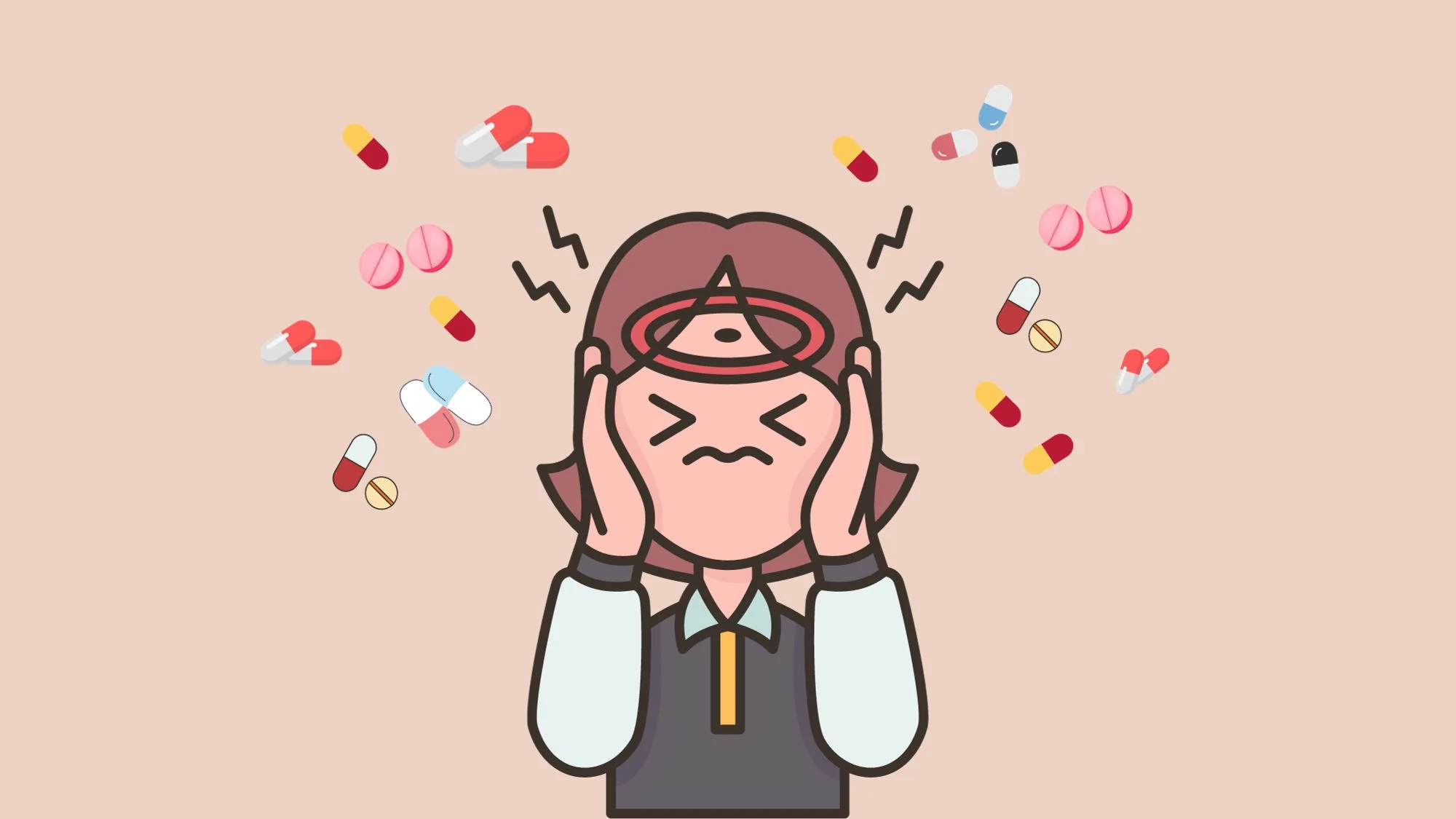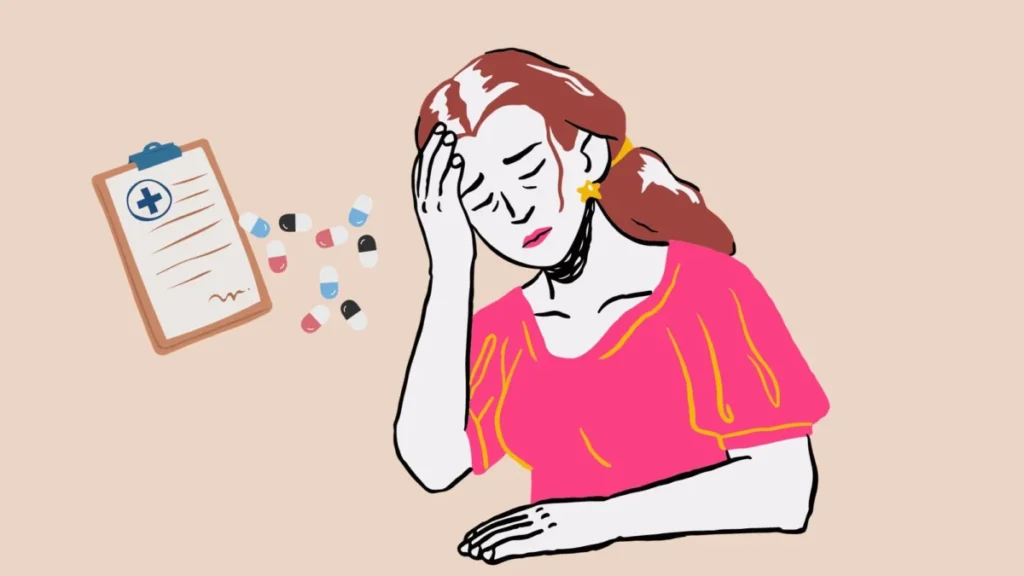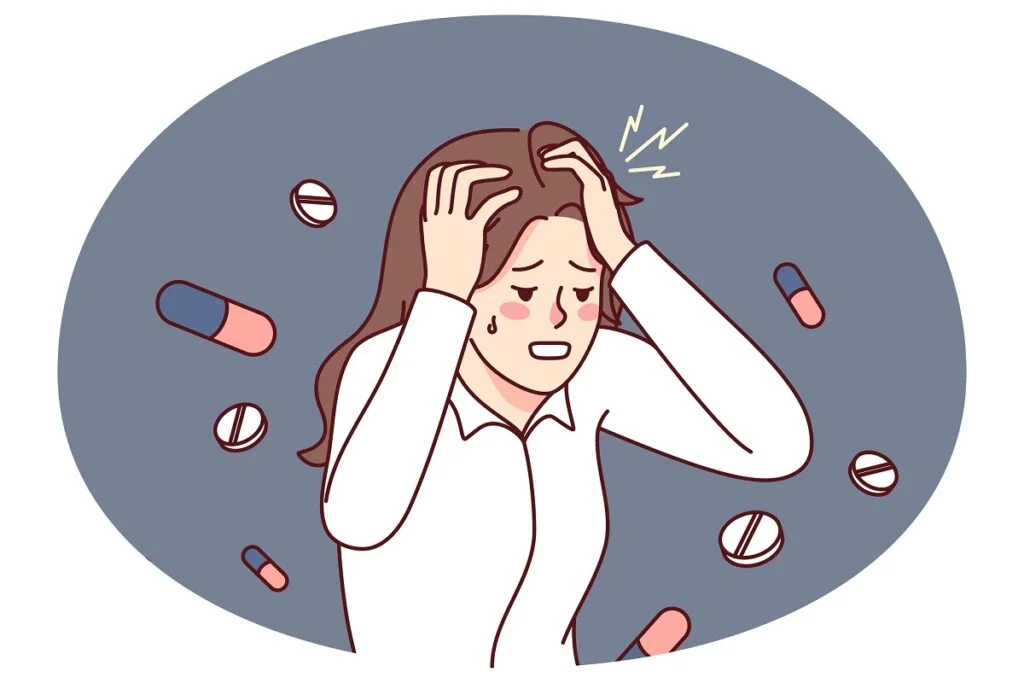
24 Apr Amitriptyline Headache Side Effect – Why Amitriptyline Might Be Giving You a Headache!
Amitriptyline Headache Side Effect is a commonly prescribed medication for treating conditions such as depression, anxiety, chronic pain, and even migraines. However, like many medications, it can come with side effects — and one of the more unexpected ones reported by some users is a headache.
If you’ve recently started taking this medication and asked yourself, “Can amitriptyline cause headaches?”, this article breaks down what you need to know.
Can Amitriptyline Really Cause Headaches?
While amitriptyline is often used to prevent migraines and chronic tension headaches, some people may ironically experience headaches as a side effect — particularly when starting the medication or adjusting the dosage. This may be due to how the drug affects the brain’s neurotransmitters, such as serotonin and norepinephrine.
For most people, these side effects are temporary and subside as the body adjusts to the medication. Amitriptyline and headaches can occur, especially during dosage adjustments Amitriptyline causing headaches is often temporary as your body adjusts.
When Do Headaches from Amitriptyline Typically Occur?

Headaches related to amitriptyline often occur:
- In the first few days or weeks after starting treatment
- After a dosage increase
- When missing doses or abruptly stopping the medication (withdrawal symptoms)
It’s important to take the medication consistently and follow your doctor’s instructions to minimize any side effects. Amitriptyline migraine side effects may appear in the first few days or weeks.
What to Do If You Experience Headaches on Amitriptyline
If you notice headaches after starting amitriptyline:
- Track your symptoms: Note the timing, severity, and duration of the headache. Amitriptyline headaches can often be tracked and managed effectively
- Stay hydrated: Dehydration can worsen headaches and mimic medication side effects.
- Avoid triggers: Caffeine, alcohol, and lack of sleep can make symptoms worse.
- Talk to your doctor: Never stop or adjust your dose without consulting your healthcare provider. They may reduce the dosage or switch medications if needed.
Why Amitriptyline Is Still Prescribed for Migraines
Despite headaches being a possible side effect, amitriptyline is widely used for migraine prevention because it:
- Increases serotonin levels, which can stabilize mood and reduce pain sensitivity
- Helps improve sleep, which plays a key role in migraine control
- Reduces the frequency and severity of chronic tension-type headaches
The benefits often outweigh the side effects for many patients, especially once the body has adjusted. Even though amitriptyline headaches may occur, its benefits in migraine prevention are significant.
Sleep Changes and Headache Risk on Amitriptyline
Amitriptyline is known for its sedative effects, often prescribed at night to help improve sleep. However, in some individuals, changes in sleep patterns — such as deeper or disrupted REM sleep — may trigger headaches upon waking. Monitoring your sleep and adjusting timing with your doctor’s help can reduce this risk. Monitoring sleep can help reduce amitriptyline and headaches in sensitive individuals.
Tapering Off Amitriptyline and Withdrawal Headaches

It’s important to taper off the medication gradually under medical supervision to avoid these side effects. A controlled reduction plan helps your body adjust safely without triggering headache episodes.
Tips to Manage Amitriptyline-Induced Headaches
If you suspect your headaches are linked to amitriptyline, simple strategies like staying hydrated, avoiding known headache triggers, managing stress, and keeping a consistent sleep routine can help. Always consult your doctor before making changes to your medication.
When to Seek Medical Advice
While mild headaches may resolve on their own, persistent, severe, or unusual headaches should be reported to your healthcare provider. They may adjust your dosage or explore alternative treatments to ensure your comfort and safety.
FAQs:
1. Is headache a common side effect of amitriptyline?
It’s not the most common, but some users report headaches, especially when beginning treatment or changing the dose.
2. How long do amitriptyline side effects last?
Most side effects, including headaches, tend to resolve within a few weeks as your body adjusts to the medication.
3. Can amitriptyline be used to treat migraines?
Yes, amitriptyline is often prescribed at low doses to help prevent migraines and reduce their intensity.
4. Should I stop taking amitriptyline if I get headaches?
No, never stop medication without medical advice. Speak with your doctor to evaluate the cause and adjust your treatment safely.
5. Are there alternatives to amitriptyline for migraine treatment?
Yes, other medications like nortriptyline, propranolol, or topiramate may be used depending on your symptoms of Amitriptyline headaches and tolerance.
Conclusion:
While it may seem ironic that a drug often used to prevent headaches can occasionally cause them, headaches as a side effect of amitriptyline are usually short-lived and manageable. Staying consistent with your dosage, maintaining a healthy lifestyle, and communicating with your doctor can help you get the most benefit with minimal discomfort of Amitriptyline migraine side effects, don’t hesitate to consult your healthcare provider for guidance or alternative treatment options.

No Comments